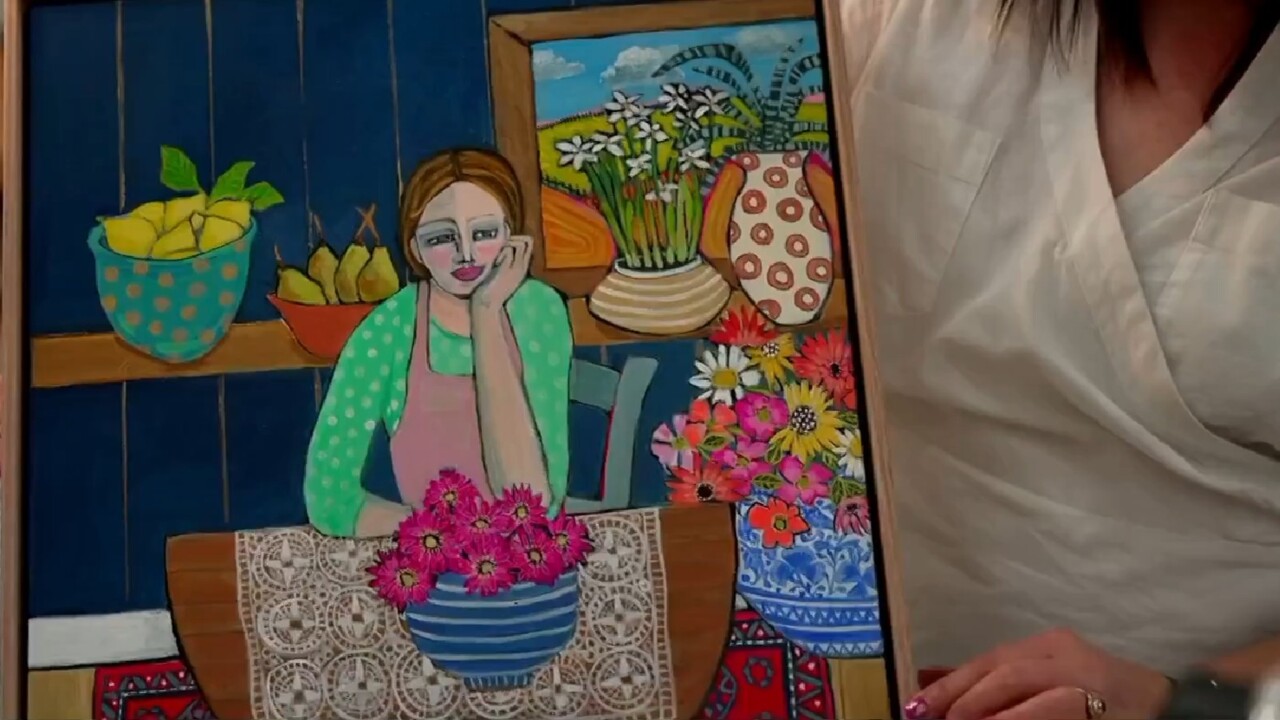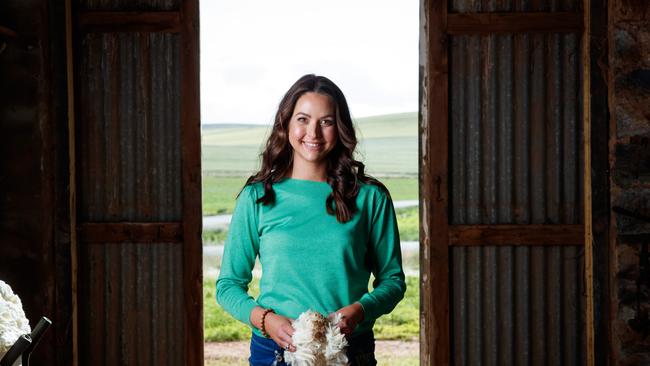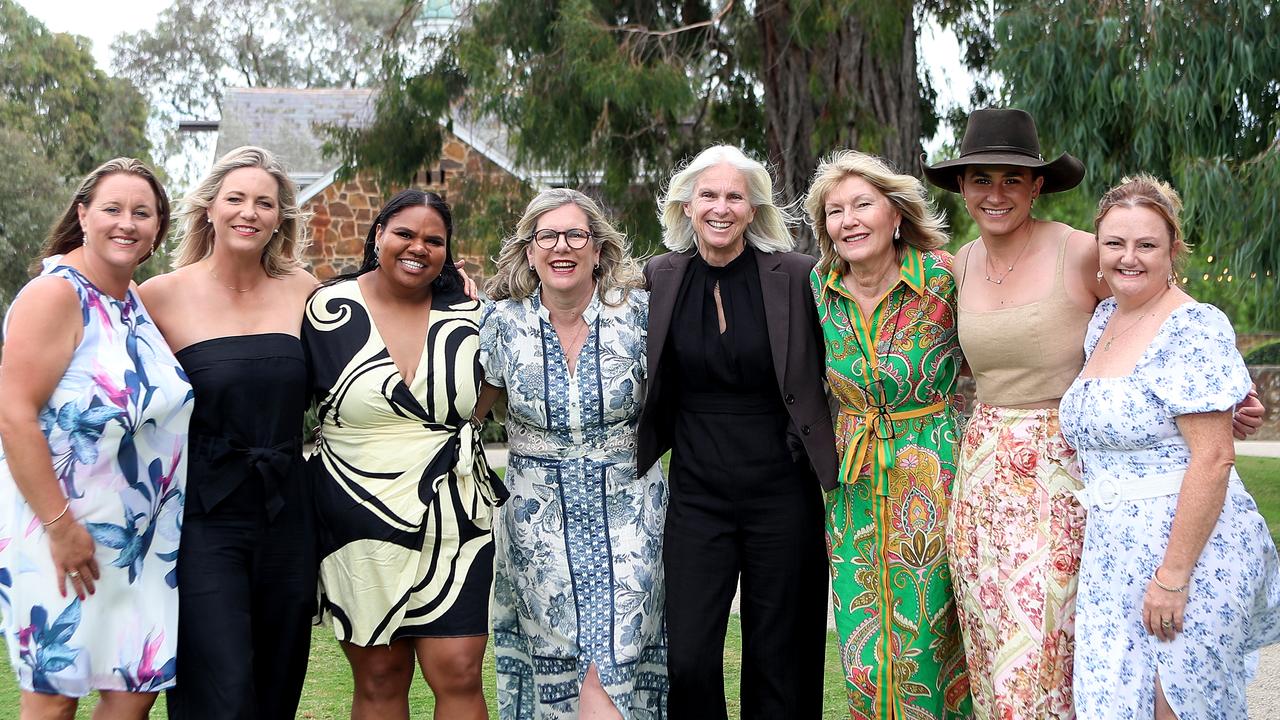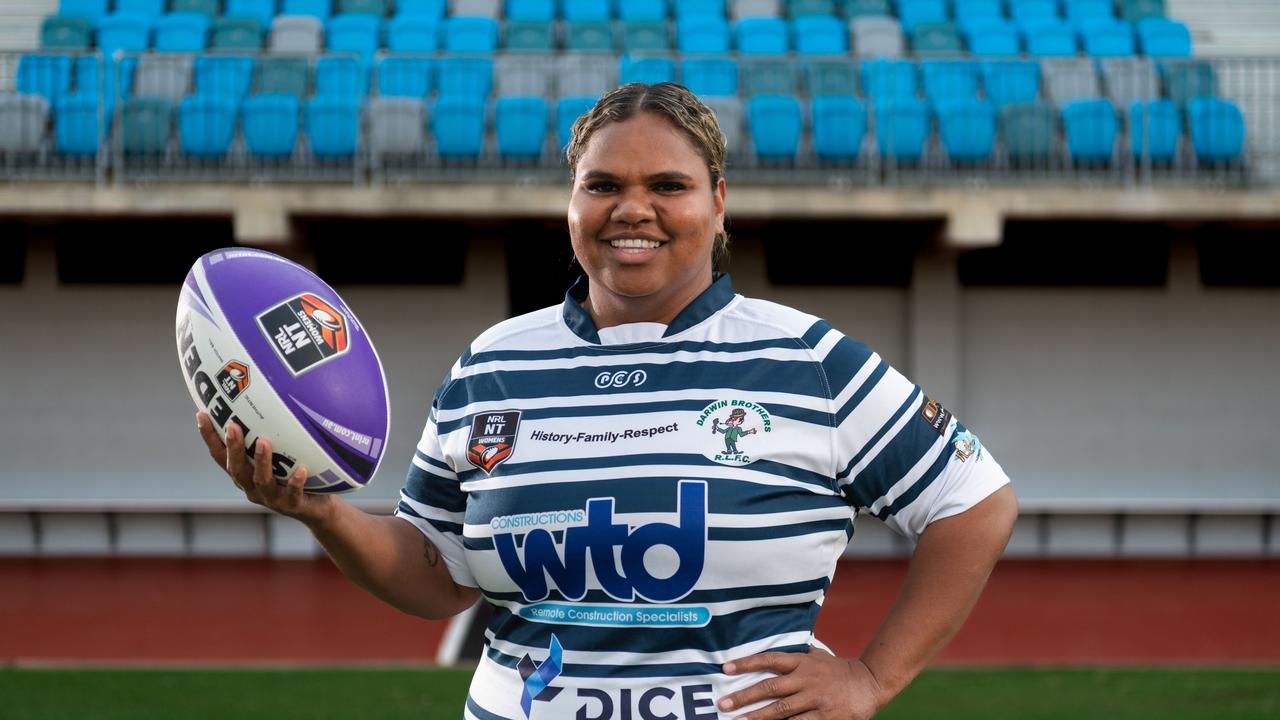Shine Awards 2022: Iris & Wool founder Emily Riggs wins Passion category
A South Australian woman behind Merino fashion brand Iris & Wool is the winner of the Shine Award for Passion. Meet the finalists.

The Weekly Times 2022 Shine Award for Passion goes to a rural woman who is a star in her field.
One of six categories in the awards, which celebrate Australia’s rural women, Passion honours those who are armed with natural talents and determination, and have achieved much in their community or place of work.
This year’s winner is Merino wool fashion designer Emily Riggs, from South Australia, who uses her brand to champion Australian sustainable fibre and help other families battling cancer. Finalists are Lucy Collins from Dixie, Victoria, and Cherie Thompson from Dubbo, NSW. Read their stories:
2022 PASSION WINNER: EMILY RIGGS
Merino wool fashion designer, Burra, South Australia

When Emily Riggs designs collections for her fashion label, it’s not just about beautiful clothing.
For the 34-year-old mother-of-two, her Iris & Wool brand tells an inspiring personal story that is underscored by tragedy.
Iris & Wool was created in 2019 after Emily moved to a 40,500-hectare sheep and cropping farm she runs with her husband, Tom, in South Australia’s Mid-North.
Her Woolmark designs are made with 100 per cent pure Australian Merino, with a once-a-year autumn-winter collection for women, men and children, and for the first time this year a spring collection.
The wool is fully traceable to farms across Victoria and NSW, although the 2023 collection is a milestone, made with wool from the Riggs’ own flock.
“This has been a big achievement for us,” says Emily, who is on the board of the newly created South Australian Fashion Industry Association.
“It means full traceability of every single item we produce.
“Australian Merino wool is the best fibre in the world, sustainable, biodegradable, renewable, grown from sheep, air, sunshine and grass. You can’t get more natural than that.”
Emily says environmentally sustainable slow fashion is at the heart of her designs.
“It is always harder, more expensive and takes twice as long to ensure a sustainable focus,” she says.
“This is not disposable fashion. It lasts a lifetime. Slow fashion is all about an awareness and approach to fashion that considers every process and every resource used.
On an even more personal level, Iris & Wool was born from tragedy.
Just before her 10th birthday Emily was diagnosed with non-Hodgkin lymphoma and underwent two years of chemotherapy. While she was sick, her mother passed away from breast cancer, having battled it for five years.
The iris in Iris & Wool is a tribute to her mother’s favourite flower, and Emily now donates $1 from every clothing sale to the McGrath Foundation.
“When Mum and I were both sick we had to leave our hometown and move closer to treatment,” she says.
“Perhaps if we had access to a McGrath Breast Care nurse back then, for Mum things may have been different.
“I was given a second chance at life and I want to support in any way I can, to help others have the same outcome.”
Emily’s passion for showcasing Australian wool, connecting consumers with producers, and giving back to help others beat cancer makes her a worthy winner of the Shine Award for Passion.
Launched in 2017, The Weekly Times Shine Awards, supported by Harvey Norman, celebrates the contributions of Australia’s rural and regional women.
This year, 120 nominations were received for rural women in every state and territory.
Finalists were announced last week and today winners have been revealed in six categories: Belief, Courage, Dedication, Grace, Passion and Spirit.
Meet the other finalists in the Passion category.
FINALIST: LUCY COLLINS
Livestock vet and dairy farmer, Dixie, Victoria

Lucy Collins wears many agricultural hats – vet, dairy farmer, industry representative – and she wears them all well.
In each of the roles she takes on, Lucy champions animal welfare, sustainable land management and the welfare of people who keep the dairy industry going.
But perhaps what drives her most is raising the profile of women who are leading the way in the industry, and inspiring others to do the same.
Lucy works alongside her partner, Matthew Glennen, on his family’s dairy farm at Dixie, in southwest Victoria.
She is also a senior vet in Timboon, and was last year awarded a prestigious Nuffield Scholarship, through which she studied public perceptions and welfare enhancement in the Australian dairy industry.
She says having such varied roles across the sector is a dream come true.
Lucy grew up in South Gippsland, with agricultural contractors for parents.
“I really love farmers, I love what they do, and I love being outdoors,” she says. “I grew up working for the neighbouring property, rearing their calves, and doing a bit of milking.
“That’s where I grew interested in dairy in particular. The fact I didn’t have a family farm meant I thought being a vet would be a great way to get on-farm in a meaningful way.”
Today, her work is definitely meaningful. Not only is she contributing to her 650-cow milking operation with her veterinary knowledge and work ethic, she is making ripples across the region.
In February this year, she and fellow industry women Renata Cumming and Chloe Brown organised and ran an inaugural conference for women in dairy called Cream of the Crop.
Recognising the need for a forum to give females in dairy the chance to come together for connection, personal development, education and motivation, the event was a huge success and the second is planned for March next year.
Lucy says their mission was to “provide a safe environment for women to seek connection, conversation and education on topics essential to their work on farm, in farming businesses and in industry support roles”.
FINALIST: CHERIE THOMPSON
Native Secrets founder, Dubbo, NSW

Weilwan woman Cherie Thompson is on a mission to keep her people’s culture alive by reigniting interest in the healing power of native plants.
And while she’s at it, she’s healing the environment.
Cherie and her husband, Phil, live on a 1200-hectare farm at Dubbo in NSW.
The couple launched Native Secrets skincare range in 2013, creating products with restorative and anti-inflammatory properties derived from native botanicals, including white cypress, davidson plum, lemon myrtle, finger lime and kakadu plum.
Cherie has investigated each plant’s healing powers, seeking out knowledge from local Wiradjuri elder Peter Peckham, as well as scientific tests.
Her mission is not just to create a profitable business, but to share thousands of years of native culture with modern Australians.
“We started really to create a conversation between Indigenous and non-Indigenous people,” Cherie explains.
The idea first set seed when Phil did some work at a eucalyptus-oil distillery at Tumut. He and Cherie discovered they could use the process to extract oil from white cypress trees, which are native to their area, but if not actively managed can become invasive. They conducted tests to confirm white cypress leaf was full of natural anti-inflammatories.
Cherie jumped into action, founding a business while still working as a teacher and balancing it all with being a mother of two girls, Airley, 9, and Romee, 5.
She created a brand, found manufacturing experts to help formulate products and worked hard to take the idea from concept to consumer.
Native Secrets products sell across NSW and Queensland, and online, with Cherie working on plans to export to South Korea. With support from a grant, they expect the business to create up to 30 local jobs in the coming five years.
Phil harvests the dense cypress trees on a local mining company’s land, to help it manage its biodiversity offsets. Cherie says traditionally the scrubby pines would have been thinned through ancient firestick farming – or cultural burning – but Phil uses a chainsaw. Oil is extracted from the leaf and wood on their farm.
Since Phil started harvesting, balance is returning to ecosystems. “The native grasses are coming back, which allows the whole ecosystem to come back,” Cherie says. “The ants, beetles, bugs, lizards. Even the birds. It is incredible.”




